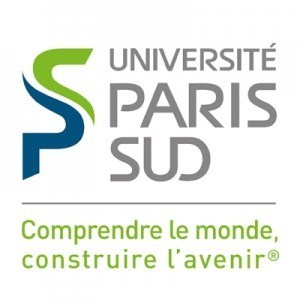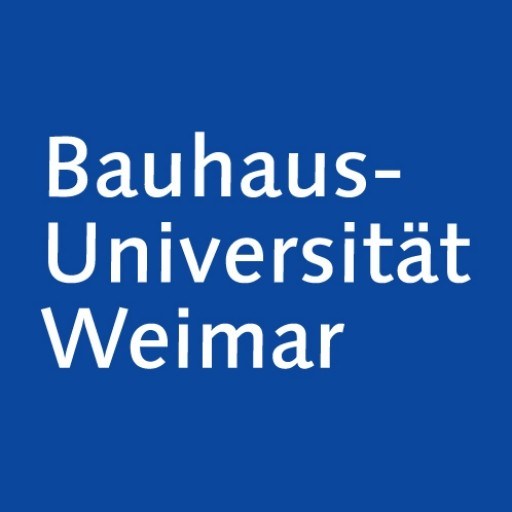Photos of university
The Bachelor's Programme in Human-Technology Interaction at Eindhoven University of Technology offers a comprehensive and innovative education focused on designing and optimizing interactive systems that enhance human capabilities and experiences. This interdisciplinary program combines the fields of engineering, psychology, design, and computer science to prepare students for a career in developing user-centered technology solutions. Students will learn how to analyze human behavior, needs, and skills to create intuitive and accessible interfaces, as well as intelligent systems that seamlessly integrate with daily life.
Throughout the program, students engage in practical projects, designing real-world applications such as assistive devices, smart environments, and digital interfaces. The curriculum emphasizes the importance of understanding user experience, usability, and accessibility to develop technology that genuinely benefits users. Core courses cover areas like cognitive psychology, human factors engineering, interaction design, hardware and software development, and data analysis. Students also acquire skills in programming, prototyping, and user research methods to effectively translate concepts into functional prototypes.
The programme uniquely combines theoretical knowledge with hands-on experience, ensuring that graduates are well-equipped to meet the demands of an ever-evolving technological landscape. Students have access to state-of-the-art laboratories and collaborate with industry partners on innovative projects, internships, and research assignments. The program also encourages multidisciplinary teamwork, fostering communication and collaboration skills essential for working in diverse teams.
Graduates of the Bachelor’s in Human-Technology Interaction are prepared for various roles in technology-driven industries such as healthcare, consumer electronics, automotive, and entertainment. They can pursue further specialization through master's degree programs at TU/e or other institutions, or directly enter the workforce as designers, usability experts, UX researchers, and developers. With a strong foundation in both technical and human-centered disciplines, graduates contribute to the development of smarter, more inclusive, and more effective technological solutions that improve everyday life for people around the world.
The Master's program in Human-Technology Interaction at Eindhoven University of Technology is designed to prepare students for the rapidly evolving field of designing and analyzing interactive systems that effectively meet human needs. The program combines insights from psychology, design, computer science, and engineering to equip students with the knowledge and skills necessary to create user-centered technological solutions across various domains, including healthcare, entertainment, education, and industry. Throughout the program, students explore core topics such as user experience design, human factors, cognitive psychology, usability testing, and interaction design principles. They also gain practical experience by working on real-world projects, developing prototypes, and conducting user research to inform design decisions. The curriculum emphasizes a multidisciplinary approach, encouraging collaboration among students from diverse backgrounds to foster innovative problem-solving abilities. In addition to theoretical foundations, students learn modern techniques for evaluating and improving system usability, ensuring that technology is accessible, efficient, and enjoyable for all users. The program also offers specialization tracks, allowing students to focus on areas like intelligent user interfaces, health technology, or digital entertainment, depending on their interests and career aspirations. Eindhoven University of Technology's strong ties with industry partners provide opportunities for internships and collaborations, giving students valuable insights into current industry challenges and solutions. Graduates of the Human-Technology Interaction Master's program are well-equipped to pursue careers in research, development, and consultancy roles within technology companies, design agencies, research institutes, and healthcare organizations. They also have a solid foundation for pursuing doctoral studies or engaging in entrepreneurial ventures that focus on user-centered innovations. Overall, this program prepares students to become leaders and innovators in creating technology that truly resonates with human needs and enhances everyday life through thoughtful design and advanced interaction techniques.
Program requirements for the MSc Human-Technology Interaction at Eindhoven University of Technology typically include a relevant Bachelor's degree in a related field such as Cognitive Science, Human Factors, Psychology, Computer Science, Design, or Engineering. Applicants should demonstrate a strong academic record, particularly in courses related to human-computer interaction, user-centered design, and ergonomics. Proficiency in English is mandatory, with accepted tests usually including IELTS (minimum score of 6.5) or TOEFL (minimum score of 90).
Applicants are expected to submit a motivation letter that explains their interest in Human-Technology Interaction and how their background aligns with the programme. Letters of recommendation from academic or professional references are often required. Prior experience in research, design projects, or user studies relevant to human-technology interaction can strengthen the application.
The admission process may also include an interview or assessment to evaluate the applicant's motivation and suitability for the programme. Candidates are advised to have a solid foundation in technical skills such as programming, data analysis, or prototyping, as well as a good understanding of human factors. Additional qualities like creativity, problem-solving skills, and teamwork are important, given the interdisciplinary nature of the programme.
The university values diversity and encourages applicants from various academic backgrounds to apply. For international students, additional documentation such as passport copies and financial proof might be necessary. Meeting the above criteria does not guarantee admission, as selection is competitive and based on the overall profile of the applicant.
The Human-Technology Interaction program at Eindhoven University of Technology offers several financing options for prospective students. Typically, the university provides detailed information regarding tuition fees, scholarships, and financial aid packages on its official website, ensuring that applicants can plan their studies accordingly. International students enrolling in this program may be eligible for various scholarships aimed at supporting their academic goals. These scholarships can include university-wide grants, country-specific funding, and merit-based awards, designed to reduce the financial burden of pursuing a master's degree in a foreign country. In addition to scholarships, students are encouraged to explore government-funded student loans or aid programs available in their home countries or in the Netherlands. The Dutch government offers student finance options such as the "Dienst Uitvoering Onderwijs" (DUO), which manages student loans and grants for Dutch residents, and sometimes international students may qualify for similar support depending on bilateral agreements. Eindhoven University of Technology also provides information on part-time work opportunities on and near campus, which can help students finance their studies while gaining valuable work experience. Furthermore, some students receive funding through research assistantships, internships, or industry collaborations facilitated by the university, allowing them to offset education costs. Prospective students should consult the university’s admissions and financial support offices early in the application process for personalized guidance and to identify the most suitable funding options. It is important to prepare necessary documentation, such as proof of academic excellence and financial need, to increase chances of receiving financial aid. Overall, the program’s financing options are designed to be flexible and comprehensive, ensuring that talented students from various backgrounds can pursue their career ambitions in the field of Human-Technology Interaction with manageable financial support.
The Human-Technology Interaction programme at Eindhoven University of Technology is an interdisciplinary master's degree that focuses on understanding and improving the way humans interact with technology. This programme aims to equip students with the skills to design, evaluate, and implement user-centered technological solutions across various fields. Students learn to analyze human behavior, cognitive processes, and social dynamics related to technology use, combining insights from psychology, design, engineering, and computer science.
The curriculum typically covers topics such as user-centered design, human factors, usability testing, interaction design, ergonomics, and the development of innovative interfaces and technologies. Students are encouraged to work on real-world projects, often collaborating with industry partners to solve practical problems. This hands-on approach helps students develop practical skills in designing intuitive and accessible systems while considering ethical, social, and cultural implications.
The programme emphasizes research and critical thinking skills, enabling students to conduct experiments, analyze data, and contribute to the advancement of knowledge in human-technology interaction. Graduates often pursue careers in product design, user experience research, human factors engineering, and technology consultancy. They are prepared to work in sectors such as healthcare, consumer electronics, automotive, robotics, and digital media.
At Eindhoven University of Technology, the Human-Technology Interaction programme benefits from state-of-the-art facilities, including dedicated labs for usability testing and prototyping. The programme's faculty consists of experts in various disciplines who foster an innovative learning environment that encourages creativity and critical analysis. Furthermore, the international orientation of the programme attracts students from diverse backgrounds, enriching the learning experience with a global perspective on technology and human interaction.
In summary, this master's programme offers a comprehensive education in understanding and shaping the interaction between humans and technology. It prepares students to design user-friendly technological solutions that enhance quality of life, improve efficiency, and promote inclusive access. Graduates leave with a solid foundation in both theory and practical skills, ready to contribute to the rapidly evolving field of human-technology interaction across multiple industries and research areas.









